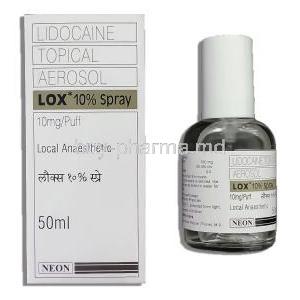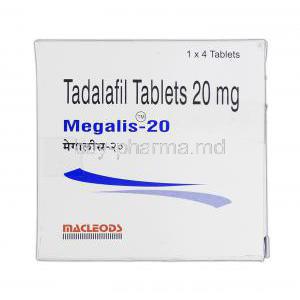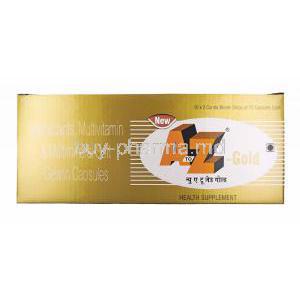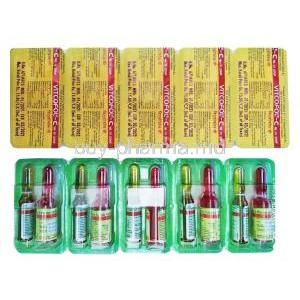Vitamin C
Uses
Vitamin C is used in the treatment of nutritional deficiencies. Vitamin C is also known as L-ascorbic acid.Vitamin C is a water-soluble vitamin that is naturally present in some foods, added to others, and available as a dietary supplement.
How it Works
Vitamin C is required for the biosynthesis of collagen, L-carnitine, and certain neurotransmitters. Vitamin C is also required in protein metabolism. Vitamin C is also an important physiological antioxidant and has been shown to regenerate other antioxidants within the body, including alpha-tocopherol.
Common Side effects
Patients who take Vitamin C may suffer from such side effects;
Vomiting,
Nausea,
Back pain,
Diarrhoea,
Headache,
Flushing,
Skin redness,
Stomach cramp,
Stomach upset
Pyridoxine(Vitamin B6)
Uses
Pyridoxine(Vitamin B6) is taken as a dietary supplement.
How it Works
Pyridoxine is also known as vitamin B6. Vitamins are required in small quantities to help bodies grow, develop, and function properly. Although most people receive sufficient amounts of pyridoxine from the food they eat like good natural sources are fish, meat and potatoes, pyridoxine deficiency can sometimes occur in people who have a condition which interferes with the way food is absorbed. Therefore Pyridoxine helps to overcome this deficiency.
Common Side effects
Patients who take Pyridoxine may suffer from such side effects;
Nausea,
Vomiting,
Stomach pain,
Loss of appetite,
Headache,
Tingling,
Sleepiness
Folic Acid
Uses
Folic Acid is used in the treatment of folic acid deficiency and to prevent anemia.
How it Works
Folic acid is a type of vitamin B. Folic acid helps the body produce and maintain new cells. Folic acid is also necessary for the normal production and maturation of red blood cells.
Common Side effects
Patients who take Folic acid may suffer from such side effects;
Nausea,
Abdominal distension,
Rash,
Itching,
Decreased appetite,
Flatulence
Vitamin D3
Uses
Vitamin D3 is used as a supplement in nutritional deficiencies.
How it Works
Vitamin D3 works to help with the absorption of calcium from the stomach and for the functioning of calcium in the body.Vitamin D3 is used to treat or prevent many conditions caused by a lack of vitamin D, especially conditions of the skin or bones
Common Side effects
Patients who take Botulinum may suffer from such side effects;
Cough,
Difficulty swallowing,
Dizziness,
Fast heartbeat,
Hives or itching,
Puffiness or swelling of the eyelids or around the eyes, face, lips, or tongue,
Skin rash,
Tightness in the chest
Tocoferol(VitaminE)
Uses
Tocoferol is used in the treatment of Nutritional deficiencies.
How it Works
Tocoferol is a nutritional supplement. Tocoferol provides essential nutrients in people with certain types of nutritional deficiencies.
Common Side effects
Patients who take Tocoferol may suffer from such side effects;
Necrotizing enterocolitis,
Blurred vision,
Diarrhoea,
Fatigue,
Flatulence,
Headache,
Bleeding due to vitamin k deficiency,
Increased creatinine level in blood,
Stroke
Niacinamide
Uses
Niacinamide is used as a nutritional supplement in the treatment of nutritional deficiencies
How it Works
Niacinamide provides essential nutrients for patients suffering with niacin deficiencies.
Common Side effects
Patients who take Niacinamide may suffer from such side effects;
Heartburn,
Hepatobiliary disorder,
Liver toxicity,
Sore throat,
Stiffness of face,
Nausea,
Portal vein fibrosis,
Blockade of portal blood vessels,
Dry hair,
Headache,
Disorientation,
Fatigue
Vitamin B12
Uses
Vitamin B12 is used as a nutritional supplement for the treatment of nutritional deficiencies.
How it Works
Vitamin b12 is important for growth, cell reproduction, blood formation, and protein and tissue synthesis. Vitamin b12 helps in restoring the deficiency.
Common Side effects
Patients who take Vitamin B12 may suffer from such side effects;
Diarrhea,
Skin rash
Zinc Oxide
Uses
Zinc Oxide is used as a nutritional supplement in the treatment of nutritional deficiencies.
How it Works
Zinc oxide provides essential nutrients for patients suffering from nutritional deficiencies
Common Side effects
Patients who take Zinc Oxide may suffer from such side effects;
Rash,
Urticaria,
Swelling of mouth,
Shortness of breath
Vitamin B1
Uses
Vitamin B1 is used for the treatment and prevention of heart problems, Thiamine deficiency and also Neurological disorders
How it Works
Vitamin B1 works by Metabolizing carbohydrate thus maintains normal growth. Vitamin B1 also works to supply essential nutrients to patients suffering with nutritional deficiencies.
Common Side effects
Patients who take Vitamin B1 may suffer from such side effects;
Coughing,
Difficulty in breathing,
Sweating,
Restlessness,
Itching of skin,
Difficulty in swallowing
Vitamin B2
Uses
Vitamin B2 is used for the treatment of Eye disorders, Migraine headaches, nutritional deficiencies and Hyperhomocysteinemia
How it Works
Vitamin B2 is also known as Riboflavin. Vitamin b2 is very important in the maintenance of tissues in the body and also it works to prevent any nutritional deficiencies associated with vitamin b2
Common Side effects
Patients who take Vitamin B2 may suffer from such side effects;
Diarrhoea,
Dark colored urine
Calcium Pantothenate
Uses
Calcium Pantothenate is used as a nutritional supplement in the treatment of nutritional deficiencies.
How it Works
Calcium Pantothenate provides essential nutrients for patients suffering with certain nutritional deficiencies
Common Side effects
Patients who take Calcium Pantothenate may suffer from such side effects;
Central nervous system depression,
Coma,
Ectopic mineralization
Vitamin A
Uses
Vitamin A is used as a nutritional supplement in the treatment of nutritional deficiencies.
How it Works
Vitamin A provides essential nutrients for patients suffering with certain nutritional deficiencies
Common Side effects
Patients who take Vitamin A may suffer from such side effects;
Nausea,
Facial swelling,
Headache,
Scaling of skin,
Skin redness,
Skin swelling,
Shortness of breath,
Itching,
Diarrhoea
Manganese Chloride
Uses
Manganese Chloride is used for Additive to intravenous solutions,for the function of total parenteral nutrition
How it Works
Manganese Chloride works by Activating multiple enzymes and improving patients condition
Common Side effects
Some of the potential side effects of Manganese Chloride can include the symptoms below;
Hypermanganesemia,
Extrapyramidal symptoms,
Impaired biliary secretion,
Cholestatic jaundice
sodium selenate
Uses
Sodium Selenate is used for the treatment or prevention of Autoimmune thyroiditis, Arthritis, Heart disease, Virulence of viruses, Hiv infection and it also Slows aging.
How it Works
Sodium Selenate works by increasing the action of antioxidants thus treating the symptoms listed above.
Common Side effects
Some of the potential side effects of Sodium Selenate can include the symptoms below;
Hair loss,
Fatigue,
Irritability,
Nausea,
Nail inflammation,
Vomiting
chromic chloride
Uses
Chromic Chloride is used in Parenteral nutrition as a treatment is nutritional deficiencies
How it Works
Chromic Chloride works by mantaining the normal glucose metabolism and peripheral nerve function. Chromic Chloride also works to provide essential nutrients
Common Side effects
Some of the potential side effects of Chromic Chloride can include the symptoms below;
Vomiting,
Convulsion,
Gastrointestinal ulcer,
Renal injury,
Nausea,
Coma,
Liver damage


















